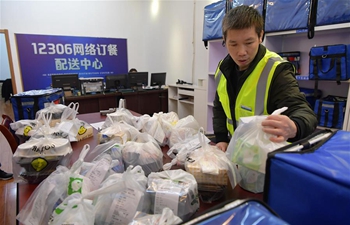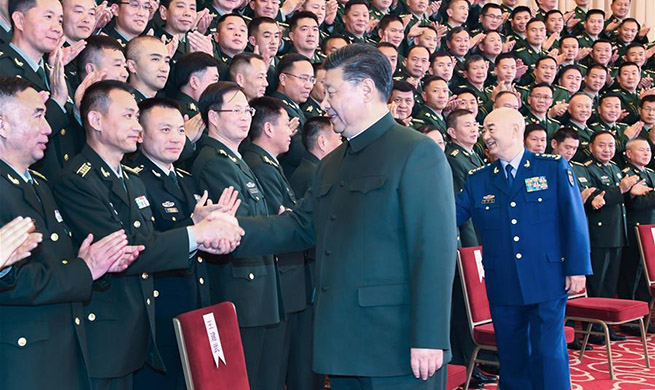GENEVA, Jan. 21 (Xinhua) -- The World Health Organization (WHO) said Tuesday that its emergency committee will convene on whether the latest novel coronavirus outbreak in China constitutes a Public Health Emergency of International Concern.
The committee will be convened by WHO Director-General Tedros Adhanom Ghebreyesus on Wednesday, and will ascertain what recommendations should be put in place to manage the situation.
At a press meeting in Geneva on Tuesday, WHO spokesman Tarik Jasarevic said that worldwide, there had been a total of 278 officially reported and confirmed cases of the novel coronavirus (2019-nCoV), including 274 cases in China, two in Thailand, one in Japan and one in South Korea. Six deaths have been reported.
He added that more cases should be expected in China and possibly other countries in the coming days.
Tarik said that for now, a WHO team is concluding a mission with health officials in Wuhan, the capital of central China's Hubei Province, where 2019-nCoV originated, to work on a response to the virus.
While in Wuhan, the team has been meeting with health experts and officials conducting an investigation into the outbreak. The mission is part of ongoing information-sharing between the Chinese government and the WHO.
The WHO has confirmed that based on current information, an animal source seems the most likely primary source of the outbreak, with limited human-to-human transmission occurring between close contacts.
It has also confirmed that human-to-human transmission is likely occurring, based on previous experience with respiratory illnesses and particularly with other coronavirus outbreaks and the analysis of data shared by China.
However, much remains to be understood about 2019-nCoV, the WHO said. Not enough is known to draw definitive conclusions about a number of questions, such as clinical features of the disease, how it is transmitted, its severity, the extent to which it has spread, and its source.
While encouraging all countries to continue with preparedness activities, the WHO has issued interim guidance on how to do this and will continue to update the information in consultation with networks of experts across the globe.
Earlier on Monday, China's National Health Commission confirmed that, in the light of the latest developments, there is human-to-human transmission in the novel coronavirus among close contacts, though the extent of the transmission is unable to be determined with the information available.
Reports suggest that a 2019-nCoV infection can cause a mild to severe form of the disease, and be fatal in some. Based on current data, some new cases seem to have experienced a milder form of the disease, which is on the milder end of spectrum of symptoms caused by respiratory illnesses, according to the WHO.
Based on currently available information, the WHO added that there is no justification for any restriction of travel or trade. Should the situation escalate, the WHO may provide guidance on the risk of travel to affected areas.

















